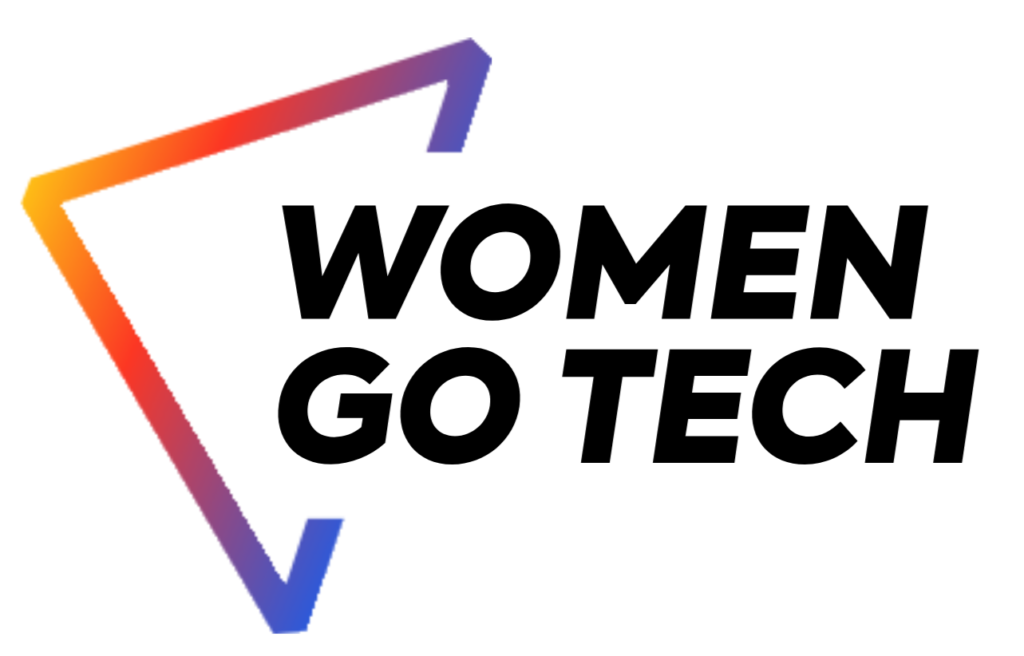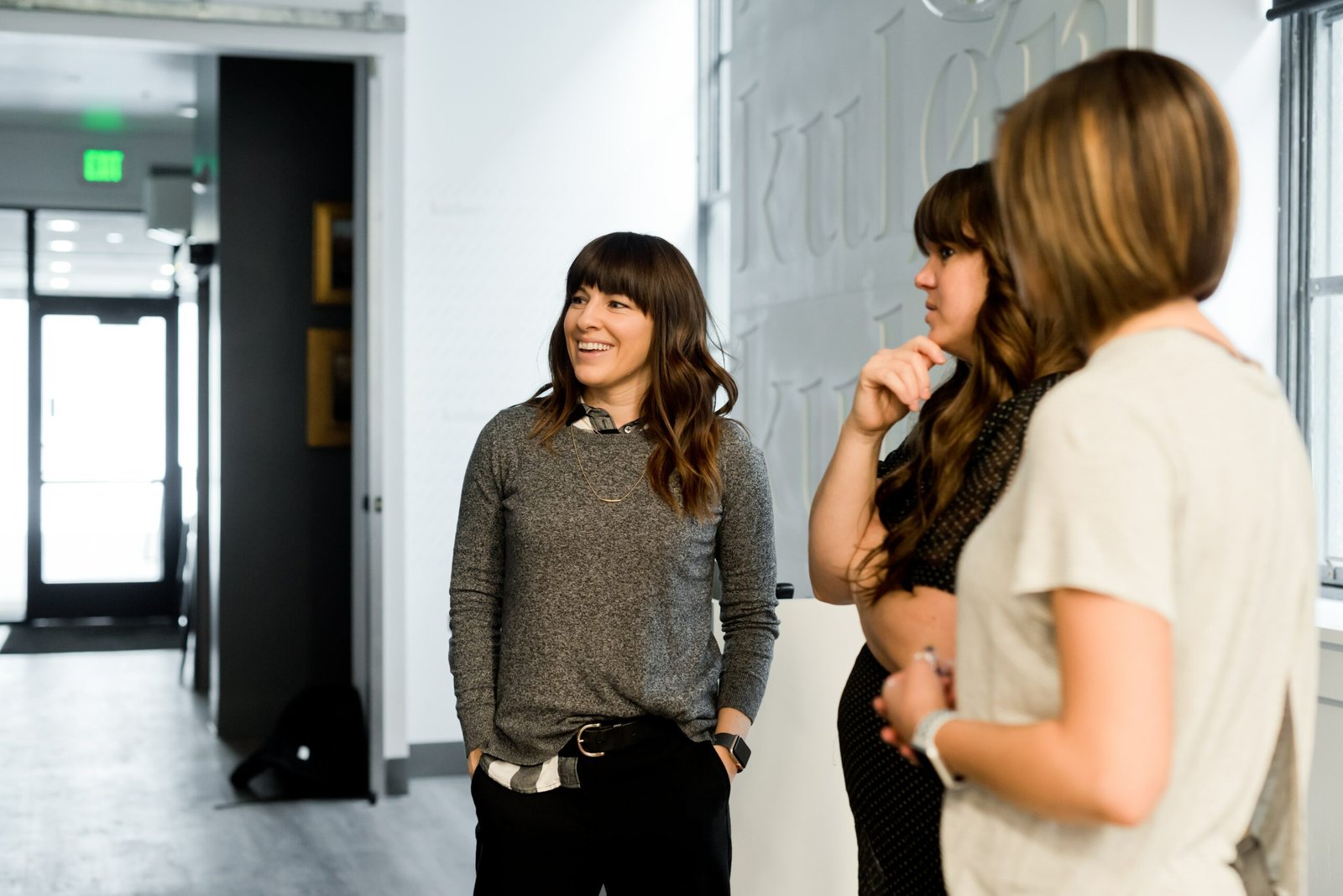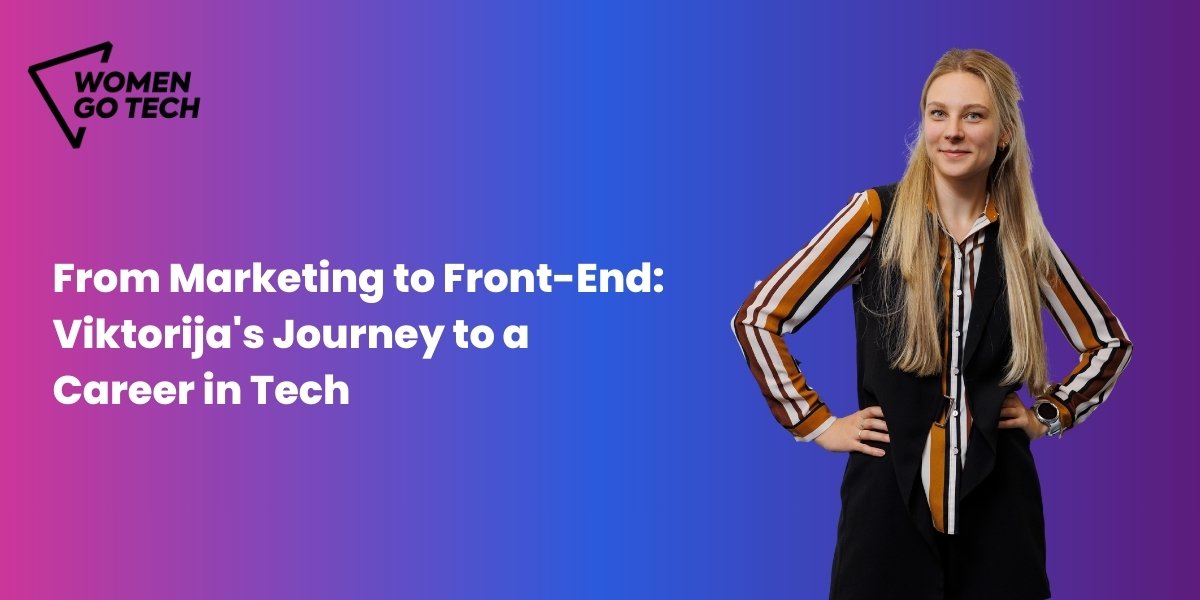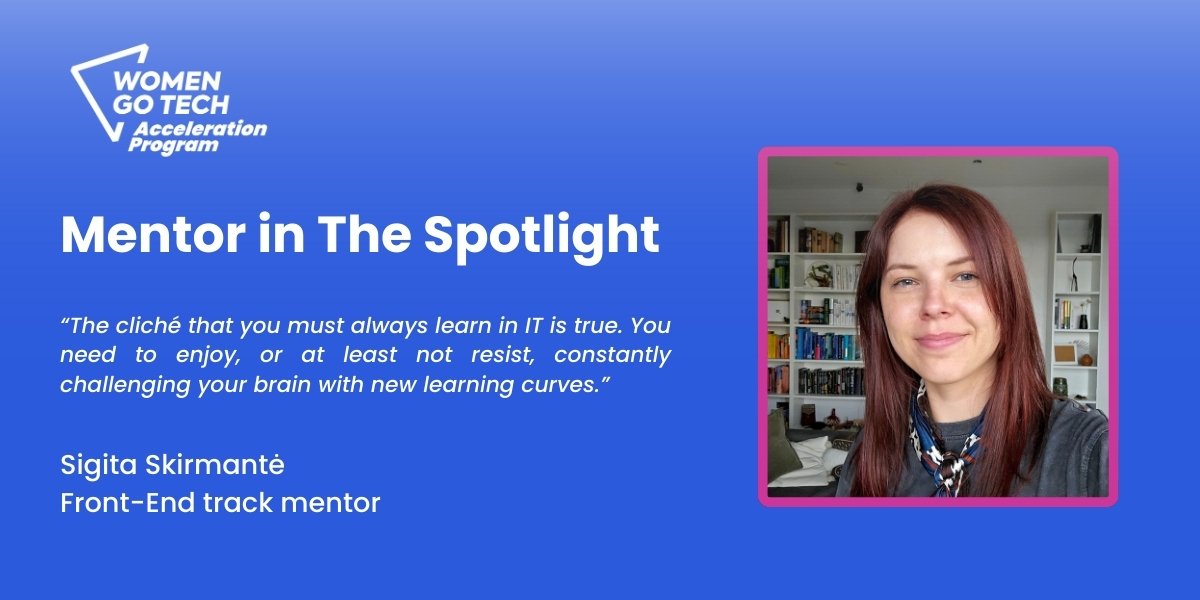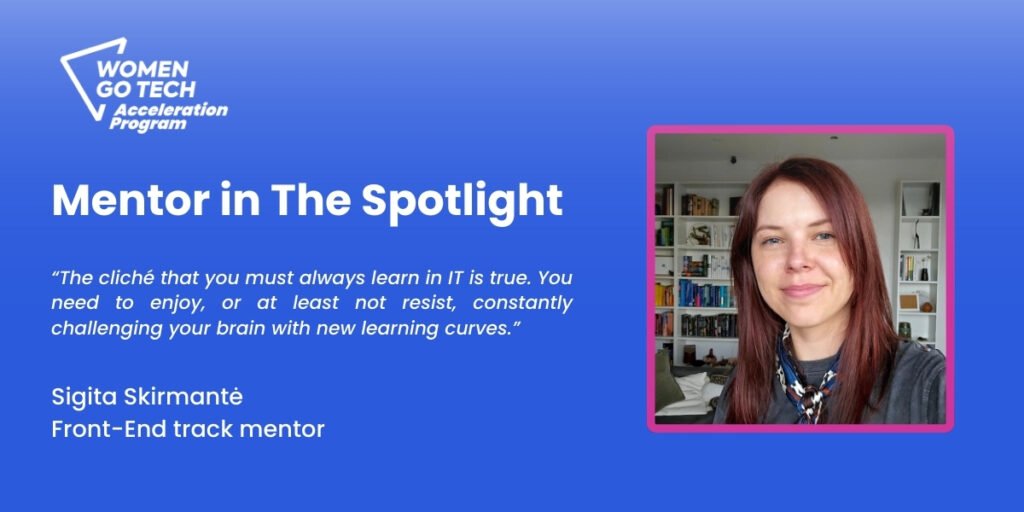Switching from marketing to tech may seem like a big leap, but for Viktorija Jakobaitė, it was the answer to finding a career that felt like home. After years of changing jobs in search of fulfillment, Viktorija took a chance on IT and discovered her passion for frontend development. Now a skilled frontend developer, she reflects on her journey from an uncertain start in marketing to building interactive web applications and collaborating with inspiring people every day.
As a graduate of the Acceleration Program and a recent speaker at Career Day 2.0, Viktorija offers insight into the challenges she faced, the turning points that led her to tech, and the rewarding experiences that keep her motivated.
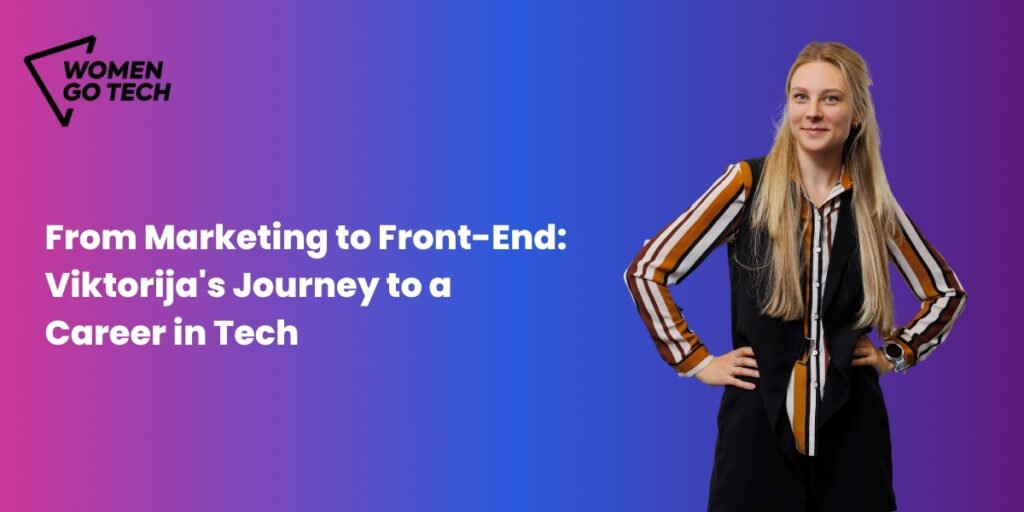
Can you tell us how your career path looked before?
I was trying to build my career in marketing and various other fields. But overall, it looked like I was changing jobs and roles every few months or a little over a year. It was simply because something was missing in each role. However, I appreciate the experience, as I was able to develop other skills along the way.
What was a key factor or reason why you decided to switch your career path?
I didn’t take a break after school and jumped straight into work during the first summer after graduation. After a few years in different fields, I still wasn’t sure what I wanted to do with my career or where I would feel happy and motivated. So after taking a few months’ break, I decided to try out an IT full-stack course, and I liked it a lot, even though starting almost from scratch wasn’t easy. But yes, feeling like I didn’t fit in anywhere else was the key reason to switch my career path.
What attracted you the most to your chosen IT role?
As I mentioned, I started with a full-stack course, which helped me see where I wanted to go next. Backend felt too deep (from a tech perspective) at that point, so I joined projects with frontend tasks instead. One project after another helped me build a foundation for my current position. After a few years, I now know some backend basics, which helps me communicate better with colleagues in my role. But I’d also say that the ability to “see” what I’m developing and work on the design aspects are what attract me to frontend development.
What were the biggest challenges while switching your career?
The IT world is HUGE—I mean, really huge. The first hard step was choosing one field to learn as a foundation. After deciding on that, getting real experience and finding a job as a junior was also challenging.
You are a graduate of our Acceleration Program. What motivated you to enroll in it?
The possibility to gain more knowledge motivated me to look for and join programs, courses, and anything that gave me additional experience in software development. You can always find people willing to help you, but specific projects, like the Acceleration Program, are like a “safe place” where you can come with questions and get straightforward help.
Can you tell us about your current role?
I’m a frontend developer, and my main focus is on developing UI/UX (user interface/user experience) solutions—from designer concepts to web applications. But communication with other developers is also inevitable. Keeping up with tech trends and new tools is a big part of my job, along with the daily tasks.
What is the most enjoyable part of your job?
The positive, smart, and inspiring people who surround me.
What advice would you give other women who are thinking about pursuing a different career path?
It won’t be easy. But be brave enough and stay confident. Almost everyone in the IT field will be willing to help you on your journey—enjoy it!
